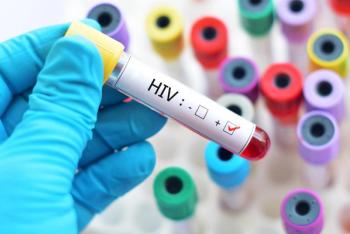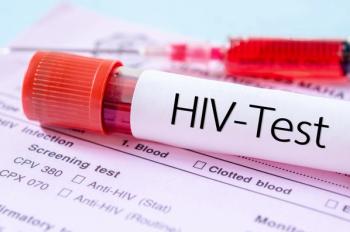
This group of antibodies is able to attach to the outer layer of HIV at a patch of glycans—chain-like structures of sugars that are on the surface of cells, including the outer shells of viruses.

This group of antibodies is able to attach to the outer layer of HIV at a patch of glycans—chain-like structures of sugars that are on the surface of cells, including the outer shells of viruses.

Research could allow the study of long-term HIV infections and the testing of new curative therapies.

The researchers are hopeful this could eventually lead to the elimination of long-term antiretroviral treatment as a lifelong necessity for patients with HIV.

Final data from a phase 3 trial assessing evolocumab in patients with HIV who have high cholesterol confirmed the safety and efficacy of the drug as a treatment.

A combination immunotherapy of interleukin-21 (IL-21) and interferon alpha (IFN-alpha) in combination with antiretroviral therapy (ART) is effective in generating highly functional natural killer (NK) cells that can help control and reduce simian immunodeficiency virus (SIV) in animal models.

Certain pre-existing conditions are common among people living with HIV/AIDS, which may contribute to the severity of their COVID-19 cases.

HIV is currently not curable but can be controlled with effective treatment options to allow patients to live a healthy life with better quality.

The primary job of myeloid dendritic cells is to support T cells, which are key to the ability to control HIV infection.

Not all CD4+ T cells are equally susceptible to infection in vivo, which could suggest that the most susceptible cells could eventually become targets of preventive interventions.

Patient and provider organizations urge the Department of Health and Human Services and the Biden administration to enact policies and protections that improve prescription drug affordability for people in the United States.

Despite the fact that 98% of the survey respondents said they were aware of PrEP, less than 25% were currently taking it.

The molecules act as decoy CD4 proteins, which the HIV particles preferentially attach to instead of CD4 cells at the surface of the cell.

Among patients with HIV who had not been diagnosed with heart disease at the beginning of the study, the risk of developing heart disease, heart failure, or stroke for the first time was 90% higher among those taking beta-blockers.

Study is the first to examine how the choice of blood pressure medications influences the long-term risk of heart disease, stroke, and heart failure in a patient population with a higher risk of cardiovascular disease.

The research team analyzed CD4-cell gene expression data from a study of HIV-infected people in Africa and Asia.

Russell Brewer, DrPH, a research associate professor at University of Chicago Medicine, discusses the value of the pharmacist in improving access and engagement in care for Black same-gender-loving men.

P.J. Moton-Poole, a senior manager at ViiV Healthcare, discusses the role pharmacists play in addressing health care disparities in BIPOC communities.

Russell Brewer, DrPH, a research associate professor at University of Chicago Medicine, discusses the lessons from both the HIV epidemic and the COVID-19 pandemic in regard to how health systems can more effectively address health care disparities in BIPOC communities.

Russell Brewer, DrPH, a research associate professor at University of Chicago Medicine, and P.J. Moton-Poole, a senior manager at ViiV Healthcare, discuss the expansion of the accelerate initiative, which funds projects that support the health and wellbeing of Black same-gender-loving men throughout the United States.

Investigators may have found a way to locate chemicals capable of suppressing HIV into its dormant state.

Although ART has helped improve the health of those with HIV, they are at a greater risk of developing complications related to chronic inflammation, such as cardiovascular disease.

TDF-based therapy is associated with renal adverse effects (AEs) and bone loss, whereas TAF-based therapy has been associated with fewer AEs.

Some HIV antibody variants, which had mutations concentrated in antibody framework regions, achieved up to 37% neutralization breadth compared to 28% neutralization in the unmodified antibody.

The sNDA seeks to expand the label of cabotegravir and rilipivirine to include dosing of every 2 months for the treatment of HIV-1 infection in virologically suppressed adults (HIV-1 RNA less than 50 copies per milliliter) on a stable regimen.

New, long-term data from open-label extensions of a pair of phase 3 studies of bictegravir 50 mg/emtricitabine 200 mg/tenofovir alafenamide 25 mg tablets showed the sustained efficacy and safety profile of the treatment.